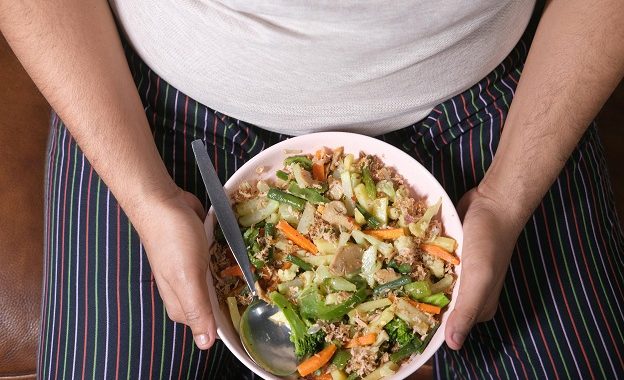
Childhood obesity has become a pressing concern globally, affecting millions of children and putting them at risk of various health issues. It’s crucial to provide parents with the necessary tools and information to prevent childhood obesity.
In this article, we will explore effective ways to educate parents on this issue, incorporating key strategies and successful prevention programs.
Understanding the Problem:
Understanding the problem of childhood obesity is essential for effective prevention. Genetic predisposition, lifestyle choices, and environmental influences collectively contribute to this issue. Parents need to recognize the interplay of these factors to tailor interventions for their children.
Genetic tendencies may dictate a child’s susceptibility, but lifestyle choices, including diet and exercise, significantly impact their well-being. Moreover, the environment, encompassing home and community settings, plays a pivotal role.
Armed with this knowledge, parents can make informed decisions, implementing targeted strategies to create a supportive and health-promoting atmosphere for their children, thereby reducing the risk of childhood obesity.
Ways to Prevent Childhood Obesity:
- Promote a Balanced Diet: Encourage a diet rich in fruits, vegetables, whole grains, and lean proteins. Limit the intake of sugary snacks, processed foods, and sugary beverages.
- Regular Physical Activity: Emphasize the importance of daily physical activity. Encourage activities that children enjoy, such as sports, dancing, or simply playing outdoors.
- Limit Screen Time: Set reasonable limits on screen time to prevent sedentary behavior. Encourage alternative activities that involve movement and social interaction.
- Family Meals: Foster a habit of regular family meals. This provides an opportunity for parents to model healthy eating habits and ensures children have access to nutritious meals.
Successful Childhood Obesity Prevention Programs:
Highlighting successful prevention programs can provide parents with proven strategies to adopt in their households.
- School-Based Programs: Collaborate with schools to implement nutrition education, physical activity initiatives, and healthy eating campaigns. This can create a holistic approach to combating childhood obesity.
- Community Engagement: Support and participate in community-based programs that promote healthy living. These may include fitness classes, cooking workshops, and health awareness campaigns.
- Government Initiatives: Advocate for and participate in government-led initiatives aimed at reducing childhood obesity. These can include policies on school lunch programs, community infrastructure, and public health campaigns.
Preventing Childhood Obesity in Schools:
Parents play a pivotal role in preventing childhood obesity by actively collaborating with schools to foster a healthy environment. They can advocate for and support initiatives that prioritize nutritious school meals, ensuring that the cafeteria offers balanced and wholesome options.
Encouraging active recess periods allows children to engage in physical activities, promoting exercise and social interaction. Additionally, parents can participate in discussions with school administrators to emphasize the importance of robust physical education programs.
By taking a proactive stance, parents contribute to the overall wellness of their children, shaping school environments that prioritize healthy habits and contribute to the prevention of childhood obesity. This collaborative effort reinforces the significance of a holistic approach to health within the school setting.
Childhood Obesity Awareness Campaign:
In the Childhood Obesity Awareness Campaign, parents play a pivotal role in spreading information through various channels. Utilizing social media platforms, parents can share educational content, tips, and success stories related to preventing childhood obesity, fostering a supportive online community.
Organizing local events, such as health fairs, workshops, or fitness activities, enables parents to engage directly with their communities, promoting awareness and healthy lifestyle choices.
Actively participating in community discussions further amplifies the impact, allowing parents to exchange ideas, address concerns, and collaboratively devise strategies to combat childhood obesity. By harnessing the collective power of parents, these awareness initiatives become instrumental in creating a widespread movement dedicated to the well-being of our children.
Solutions to Childhood Obesity:
In addressing childhood obesity, it is imperative for parents to seek professional guidance from experts such as pediatricians, dietitians, and fitness professionals. These specialists offer personalized advice tailored to a child’s specific needs and circumstances.
Pediatricians play a crucial role in monitoring a child’s growth and development, identifying potential risk factors, and recommending appropriate interventions. Dietitians can provide valuable insights into crafting balanced and nutritious meal plans, ensuring that children receive the essential nutrients for healthy development.
Fitness experts contribute by designing age-appropriate physical activity routines, fostering an active lifestyle.
By collaborating with these professionals, parents can access comprehensive support to navigate the complexities of childhood obesity, enabling them to make informed decisions and implement effective strategies for their child’s well-being.
Secondary Prevention for Childhood Obesity:
Secondary prevention for childhood obesity is a crucial step in proactively addressing the risk factors associated with this health concern. Emphasizing regular check-ups with healthcare professionals is essential, as it enables the identification of potential issues before they escalate.
Monitoring growth patterns becomes a valuable tool in this process, as deviations from expected norms can serve as early warning signs. Early detection allows for timely and targeted interventions, such as personalized dietary plans, increased physical activity, or consultations with specialists.
By prioritizing secondary prevention through routine healthcare visits and vigilant monitoring, parents can play a pivotal role in ensuring their child’s well-being and preventing the onset of obesity-related complications.
Conclusion:
Preventing childhood obesity is a shared responsibility that requires the active involvement of parents, communities, and institutions. By empowering parents with knowledge, promoting successful prevention programs, and fostering a collaborative approach, we can work towards creating a healthier future for our children. Together, let’s combat childhood obesity and pave the way for a generation that embraces a lifestyle of wellness and vitality.
Further Reading:
Childhood Overweight: Prevention Strategies for Parents

Pingback: awareness of early childhood obesity - childhood obesity awareness